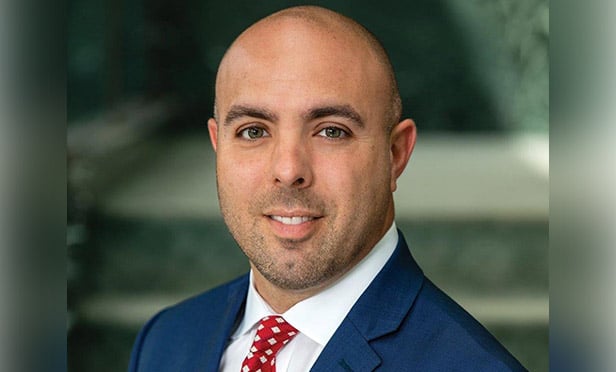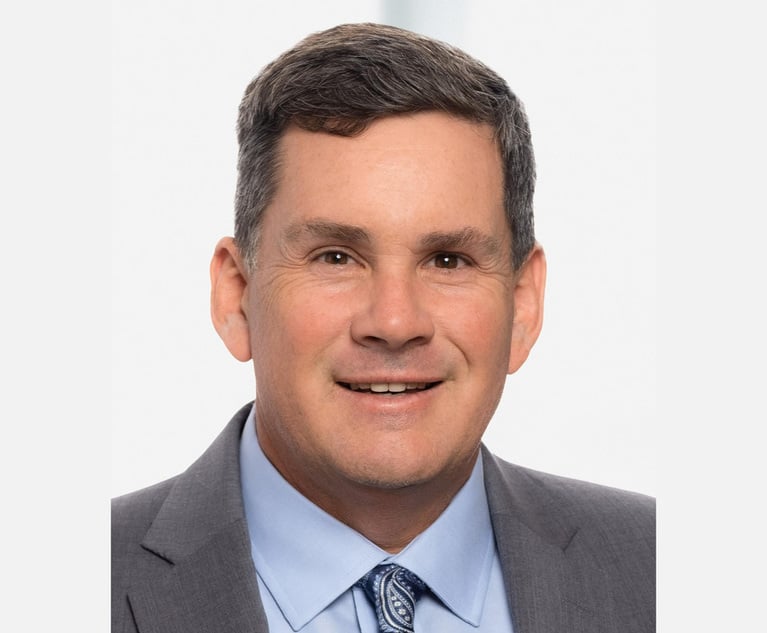 Antonio Rodrigues' niche is clients who are too exacting for other advisors to serve.
Antonio Rodrigues' niche is clients who are too exacting for other advisors to serve.
No doubt about it, difficult clients can be a hideous nightmare. But to portfolio manager Antonio B. Rodrigues, they're ideal.
A senior vice president with Procyon Partners, Rodrigues, 40, prides himself on delivering to demanding, exacting folks what other advisors can't or won't, as he tells ThinkAdvisor in an interview.
With $110 million under management, he has 40 client relationships, including individuals, families, nonprofits and corporations.
Rodrigues' high-maintenance clients — who require more attention than most and want customized, not cookie-cutter portfolios — are apt to fire their FA over a relatively minor administrative mistake. Typically, they've been through multiple advisors before signing with him. Deeply understanding of their high standards and expectations, he boasts a 95%-plus client retention rate over the last decade.
In the interview, Rodrigues talks about difficult clients' biggest gripe and what he does to serve and satisfy them.
Previously a 20-year advisor with People's United Bank's Olson Mobeck Investment Advisors and People's United Advisors, he joined Procyon in May 2018 to offer a higher level of client service, he says.
He doesn't market himself as an FA, preferring to partner with those who do. Instead, he specializes in constructing and managing portfolios. “That's a full-time job. A financial advisor needs to take a 30,000-foot view — and that's a separate job,” he argues.
Dynasty Financial Partners, providing back-office support for Rodrigues, helped the asset manager connect with Procyon when he decided to leave Olson Mobeck.
An RIA offering institutional consulting and private wealth management, Procyon was founded in 2017 by five partners who broke away from UBS.
ThinkAdvisor recently interviewed Rodrigues, on the phone from his office in Shelton, Connecticut. He was reared in nearby Trumbull, Connecticut, son of a Portuguese immigrant employed as a construction worker who ultimately launched his own construction company. As for Antonio, he gave himself a head start in finance by reading newspaper business sections when he was 9 years old and buying his first shares of Apple stock at age 12.
Here are excerpts from our conversation:
THINKADVISOR: What's your client niche?
ANTONIO RODRIGUES: I'm not afraid of clients who have high expectations. In fact, I actively seek them out. I work with a select group of self-made entrepreneurial clients who are masters of their own universe. They're used to running their businesses and have delivered exceptionalism to their clients. Similarly, they expect that from me.
What's these folks' general investing experience?
They've been invested over the course of their lifetime and have likely been through two, three or four financial advisors before they get to me. What they need is a money manager who can compete with other money managers. Most advisors don't want to get into that.
What's an example of a difficult client you've recently signed?
At the end of last year, I took on a brand-new client who had hired and fired investment managers on a number of occasions over four or five years. She'd just fired one last August because they took the fee out of the wrong account.
But that's just a lone, sort of, clerical mistake.
Many advisors might think that's a ridiculous reason to fire someone. But it's the little things that matter to this client. She'd given specific instructions not to do that, and she wound up having the consequence of not getting the tax benefit of that dollar amount being in the account.
So she felt that didn't bode well for the future of the relationship?
There are certain minimum standards that people have. Once those standards are broken, how can they expect big issues to be dealt with correctly?
What are the typical complaints of difficult clients?
The major gripe is “I haven't heard from my advisor.” They have the expectation that you'll reach out to them — call or send a note. Communication is extraordinarily important, not just frequency but how you do it and what you communicate. Usually they gripe about the lack of something — lack of communication, lack of direction [etc.].
By what method do your clients want to communicate?
Most of the time, a personal phone call. It's not just, “Hi, is your dog still sick?” It's more: “I was looking at the portfolio today. Here's what's going on specifically in the markets and how it's affecting your portfolio.” I have clients I speak to regularly two or three times a month. Most advisors aren't willing to do that.
What else do these people expect?
That their advisor creates a portfolio that isn't exactly like everyone else's. This is a major issue because most advisors want scale. My value proposition is that I'm not really looking for volume. Through Dynasty, I'm able to construct hedge funds, use private equity, do a lot of alternative-style investments. I custom-tailor and manage portfolios that can look different from anyone else's that I'm managing.
You have discretion over the accounts. Do your difficult entrepreneurial clients mind losing control to you?
Feeling comfortable letting go of the reins doesn't happen right away — nor should it. I say, “Let's do this together for the first year, and see how it goes.” So we set forth a plan. I enact the plan. But I keep the client informed all along the way.
To what extent?
If I'm placing trades today to buy five different stocks, I'll send them a note that says why it was today, why we did it and why those stocks. That continues until it becomes more of a nuisance to them than anything else. But to get the investment thesis behind a trade, clients can contact me any time to ask why I made the transaction.
How would you sum up your approach to working with perfectionist clients?
My business is focused on getting to know the client quite deeply, understanding their expectations and helping them determine whether or not those expectations are reasonable.
— Related on ThinkAdvisor:
This content has been archived. It is available through our partners, LexisNexis® and Bloomberg Law.
To view this content, please continue to their sites.
Not a Lexis Subscriber?
Subscribe Now
Not a Bloomberg Law Subscriber?
Subscribe Now
NOT FOR REPRINT
© 2025 ALM Global, LLC, All Rights Reserved. Request academic re-use from www.copyright.com. All other uses, submit a request to [email protected]. For more information visit Asset & Logo Licensing.
You Might Like
View All
Labaton’s Eric Belfi on Running Case Investigation, Analysis and Delaware Presence

Litigation Leaders: Quinn Emanuel's Michael Carlinsky on Training Associates to Think and Act Like Trial Lawyers

Innovation Award Individual Finalist: Charlie Hernandez, My Pocket Lawyer
1 minute read
Trending Stories
Who Got The Work
J. Brugh Lower of Gibbons has entered an appearance for industrial equipment supplier Devco Corporation in a pending trademark infringement lawsuit. The suit, accusing the defendant of selling knock-off Graco products, was filed Dec. 18 in New Jersey District Court by Rivkin Radler on behalf of Graco Inc. and Graco Minnesota. The case, assigned to U.S. District Judge Zahid N. Quraishi, is 3:24-cv-11294, Graco Inc. et al v. Devco Corporation.
Who Got The Work
Rebecca Maller-Stein and Kent A. Yalowitz of Arnold & Porter Kaye Scholer have entered their appearances for Hanaco Venture Capital and its executives, Lior Prosor and David Frankel, in a pending securities lawsuit. The action, filed on Dec. 24 in New York Southern District Court by Zell, Aron & Co. on behalf of Goldeneye Advisors, accuses the defendants of negligently and fraudulently managing the plaintiff's $1 million investment. The case, assigned to U.S. District Judge Vernon S. Broderick, is 1:24-cv-09918, Goldeneye Advisors, LLC v. Hanaco Venture Capital, Ltd. et al.
Who Got The Work
Attorneys from A&O Shearman has stepped in as defense counsel for Toronto-Dominion Bank and other defendants in a pending securities class action. The suit, filed Dec. 11 in New York Southern District Court by Bleichmar Fonti & Auld, accuses the defendants of concealing the bank's 'pervasive' deficiencies in regards to its compliance with the Bank Secrecy Act and the quality of its anti-money laundering controls. The case, assigned to U.S. District Judge Arun Subramanian, is 1:24-cv-09445, Gonzalez v. The Toronto-Dominion Bank et al.
Who Got The Work
Crown Castle International, a Pennsylvania company providing shared communications infrastructure, has turned to Luke D. Wolf of Gordon Rees Scully Mansukhani to fend off a pending breach-of-contract lawsuit. The court action, filed Nov. 25 in Michigan Eastern District Court by Hooper Hathaway PC on behalf of The Town Residences LLC, accuses Crown Castle of failing to transfer approximately $30,000 in utility payments from T-Mobile in breach of a roof-top lease and assignment agreement. The case, assigned to U.S. District Judge Susan K. Declercq, is 2:24-cv-13131, The Town Residences LLC v. T-Mobile US, Inc. et al.
Who Got The Work
Wilfred P. Coronato and Daniel M. Schwartz of McCarter & English have stepped in as defense counsel to Electrolux Home Products Inc. in a pending product liability lawsuit. The court action, filed Nov. 26 in New York Eastern District Court by Poulos Lopiccolo PC and Nagel Rice LLP on behalf of David Stern, alleges that the defendant's refrigerators’ drawers and shelving repeatedly break and fall apart within months after purchase. The case, assigned to U.S. District Judge Joan M. Azrack, is 2:24-cv-08204, Stern v. Electrolux Home Products, Inc.
Featured Firms
Law Offices of Gary Martin Hays & Associates, P.C.
(470) 294-1674
Law Offices of Mark E. Salomone
(857) 444-6468
Smith & Hassler
(713) 739-1250






